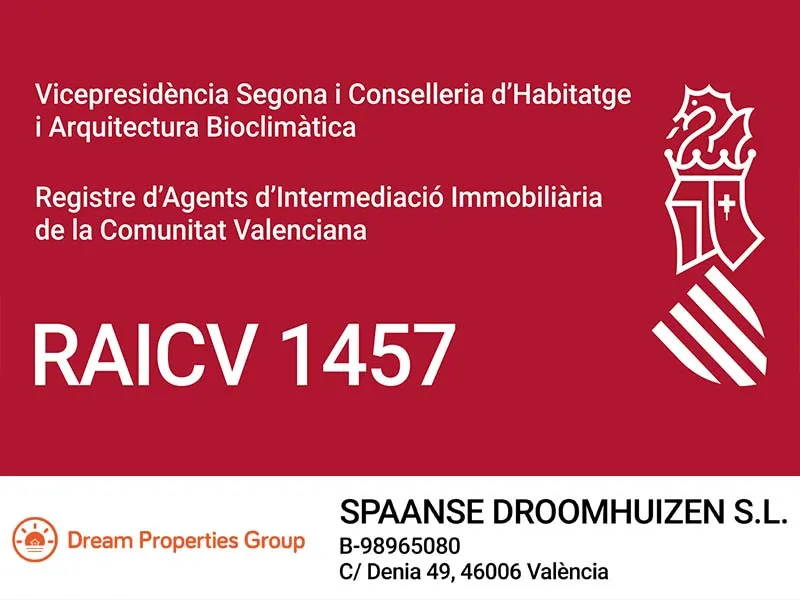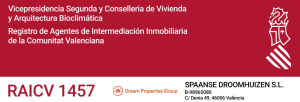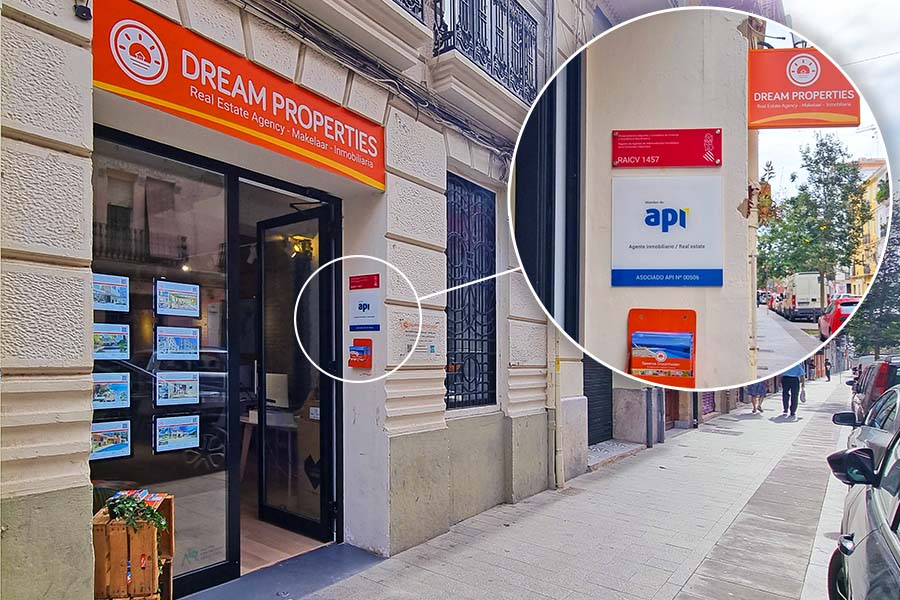PROPERTY SEARCH
Frequently Asked Questions - Renting out in Valencia
Depending on where the property is located, an application for a rental license can be made by a lawyer. It is becoming increasingly difficult to find a suitable home for short-term tourist rental, especially in the big cities. Furthermore, the rental options differ per region and per municipality. Of course, we can look for suitable homes for you that seem to meet the requirements at first glance, but a lawyer will still have to carry out the final check. Unfortunately, we can never guarantee a tourist rental license. However, you can always rent out a home for the medium (anything over three months) or long term. Think of expats, students or people taking a language course. We are happy to tell you about the possibilities.
The amount of return you can expect when you purchase a home in Valencia as an investment naturally depends purely on how often and for how long the home is rented out. The return will of course be greatest if you rent out a home all year round and less if you also use the home yourself (especially in the summer period). Unfortunately, returns will never be guaranteed, with a few exceptions. Especially in the Costa Blanca and the Costa del Sol, projects can be found with a guaranteed return, sometimes with around 5.5%. You can think of a kind of hotel concept where the rental is arranged for you. It is true that you cannot use the home whenever you want.
Many of the popular areas in Spain can generate great rental income. However, it is important to remember that areas with higher purchase prices and costs have a lower yield rate. It may be the case that a house in the interior will give you a higher return because the purchase prices are lower. In any case, investing in Valencia still remains interesting.
If you want to rent out a property in Spain for tourism, you must first register it in the Registro de Turismo of the municipality in which the property is located. Without a license you are NOT allowed to rent out tourist property. It is becoming increasingly difficult to obtain a tourist rental license, especially in the big cities, but there are still options. You can register four holiday homes so that you are considered “particular”. If you rent out more than four holiday homes, you are considered a company. Please note: renting without a rental license is punishable and you can expect fines of 1,000 to 90,000 euros, with a risk of a three-year ban on rentals. Since 2018, you need a “visto bueno” from the municipality to obtain a rental license. The home must therefore meet all kinds of requirements before it obtains a license. The rules are determined per region and sometimes per municipality and someone will come by to inspect the home.
There are also a few practical rules:
- For example, you are expected to mention the license number on every public channel (websites).
- You must also keep a guestbook (available from the local police) for all guests. This means that you have to keep track of check-ins and check-outs. You can do this yourself, but you can hire a home management company for this (we are happy to help you find a good party).
- You are also obliged to rent out the entire home. This means you cannot only rent out part of a house or individual rooms. If you want this, it is better to register as a casa rural or hotel. Although the application process for a license for a casa rural or hotel is sometimes even more complicated.
The home must also meet a number of quality standards. Naturally, the home must have a certificate of habitability and the home must at least have:
- a public entrance,
- a staircase, sound and heat insulation,
- sockets in all bedrooms,
- hot water,
- an evacuation plan (at the front of the house),
- a visible list of emergency numbers,
- a bathroom and toilet,
- a wardrobe in each bedroom,
- furniture,
- beds,
- a refrigerator,
- an oven,
- a hob or microwave,
- an iron and an extractor hood
Furthermore, the different rooms must have a minimum size. Because the requirements differ per municipality, it is best to request a checklist from the municipality where the home is located.
A property that is located inland and not on an urbanization will most likely not qualify for a tourist rental license. In this case, the zoning plan would have to be changed by the municipality and this is an uncertain process. It is also advisable to insure yourself against damage to the home caused by tenants. It is also useful to insure yourself against civil liability in case the tenant has an accident in the rental property. It is also mandatory to provide an EPC certificate (an energy performance certificate). This is normally attached to the notarial deed of sale.
Finally, there are also a number of obligations towards the tenants. For example, no deposit above 250 euros may be requested and no water, electricity, waste or community costs may be passed on to the tenant. The house must also be cleaned before your stay. In any case, to avoid problems, make sure that you are well prepared before putting your home up for rent.
It is of course also important to keep in mind the costs involved in renting a property in Spain. As the owner of a holiday home or investment in Spain you will generally be considered non-resident. The criterion for this is that you spend less than 183 days per year in Spain.
However, you are liable to pay tax in Spain if you own and rent out a home.
There are two main types of tax. First of all, you should consider the IBI, or the tax on the cadastral value of the home, and also the tax on income from rentals. The ‘Impuesto sobre Bienes Inmuebles’ is comparable to the property tax paid in Belgium or the Netherlands on real estate located in your own country. This municipal tax is paid annually and the price varies from municipality to municipality. The IBI is calculated on the cadastral value (“valor catastral”) of the property. The tax rate is often between 0.3 and 0.9%, with peaks of 1.3%. Always take into account the monthly VVE costs and the tax that is levied (varies per municipality) on the collection of household waste (basura).
And then we also know the tax that is levied on rental income, this tax is also called the “impuesto sobre la renta de no residents”. This tax is calculated based on your entire rental income (not just gross profits) and is currently set at 24% for non-EU citizens and 19% for EU citizens. However, a number of costs may be deducted from the rental income before it is taxed. Consider costs such as the IBI, environmental tax, community costs and costs to make the rental possible (water, electricity and maintenance costs). Officially, costs are only deductible proportionately depending on the number of days of the rental. For example, if you rent for 90 days per year, only 25% of the annual costs are deductible.
In addition to any income from the rental, we can say that living in the house you have purchased is good for the preservation of your home. An empty house becomes neglected more quickly and therefore possibly decreases in value and quality. Moreover, there is of course less chance of vandalism and burglary when a home is rented out. Tenants are therefore good for your wallet and your property. By hiring professional home management companies, someone always keeps an eye on things and your property will be cleaned when tenants change and defects will be repaired if this occurs. And your tenants pay the bill for this. So double profit!
Yes, there are companies that can take care of the rental. It is of course difficult, especially if you do not live in Spain, to always be present when tenants change. Fortunately, there are home management companies that can take care of the rental for you, of course for a fee. These companies take care of the check-in and check-outs of tenants, cleaning and repairing defects if necessary. This way, there is always someone keeping an eye on things. We are in contact with the best property management companies in Spain and we are happy to connect you to a good party. Please feel free to contact us.









